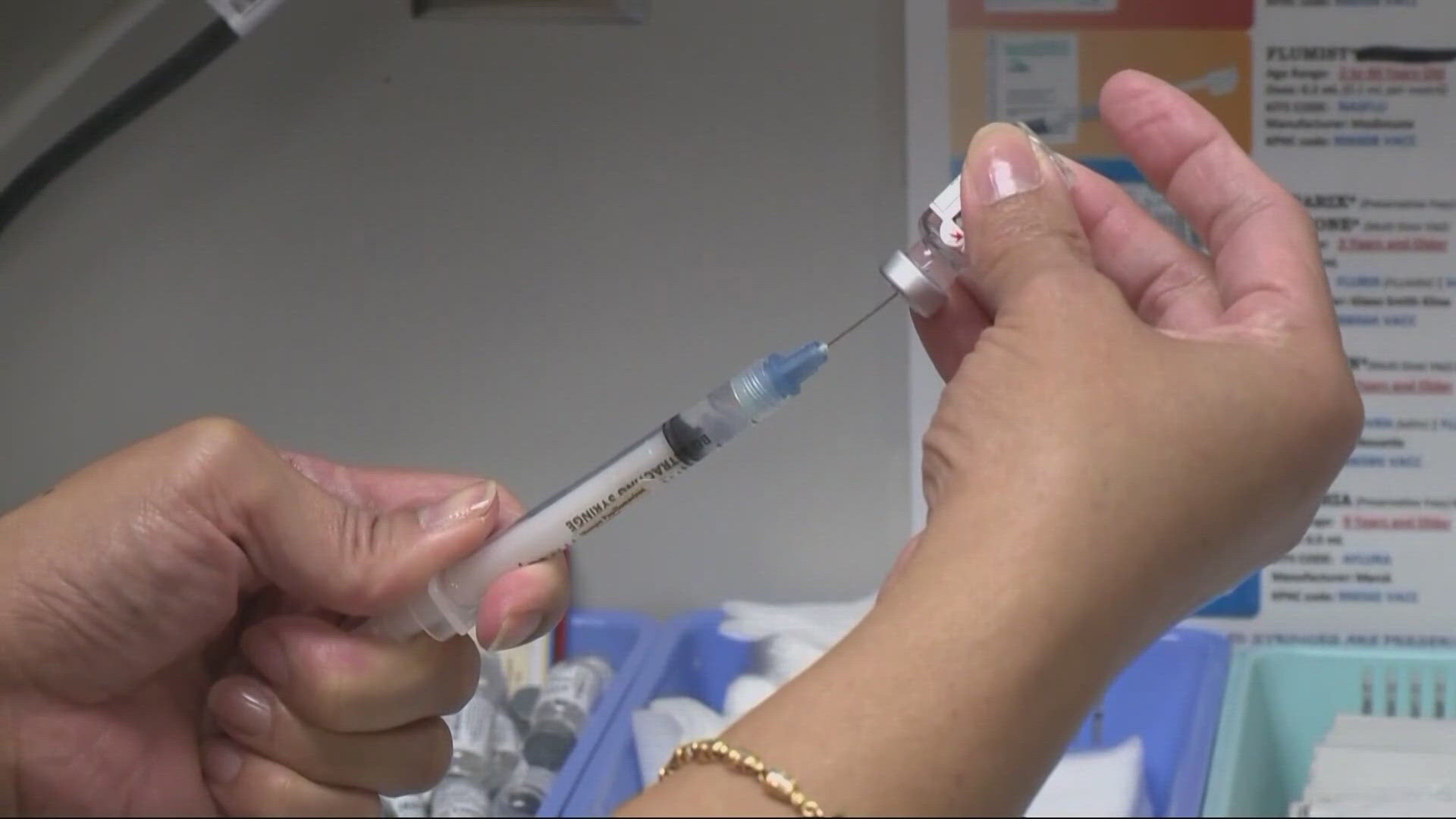PORTLAND, Ore — Today we were joined by Hiro Ito, a professor of economics at Portland State University.
He spoke with KGW's Nina Mehlhaf about the impact of coronavirus on the economy and the stock market.
Here's a partial transcript of the interview:
MEHLHAF: What is the local impact on our economy?
ITO: There are two issues. One is that we have several multinational, big corporations, such as Nike, Intel and Columbia. Those productions are very much based on the production in other parts of the world, especially in East Asia. This is an issue about global supply change. Global supply change is very much damaged in East Asia, so that can negatively affect the production of those multinational corporations. The second thing is that in East Asia – again, China, South Korea and Japan – are very much affected, but those three economies are the largest trading partners for the state of Oregon. When those economies start experiencing slowdown, which they have, then that can have a huge negative impact on exports coming from the state of Oregon.
MEHLHAF: What do we trade with them the most?
ITO: Machinery and industrial equipment, basically manufacturing goods. We also have agricultural goods going to East Asian economies as well.
MEHLHAF: Folks who work at those companies – there are a lot of people who work at Nike and Columbia and Intel – are they going to see an impact with their jobs?
ITO: In addition to the impact of the supply chain, what if their kids' schools close? Then that means parents have to stay home, and some people may have to lose their jobs because they can't work from home. That kind of negative impact on labor can happen in the state as well.
MEHLHAF: No one really knows. No one even knows what this virus is.
ITO: One thing we need to keep in mind is that the U.S. economy accounts for 20% of the world economy. East Asian economies – South Korea, China, Japan – all together account for about another 20% of the world economy. So, if the U.S. economy slows down, we have to worry about 40% of the world economy. But if the U.S. can contain the situation as it is, then we would only have to be worried about 20% of the world economy. I think we are standing at the crossroads at this moment. What’s going to happen to the U.S. economy or what’s going to happen to the global economy, really depends on how the virus situation will be within the United States in the next few weeks.
MEHLHAF: Let’s talk about 401k's, if you’re able to do. For the average working person, what does that person do?
ITO: In this kind of situation, it’s very easy for us to become panicked about the situation. That’s the reason why we experience so many ups and downs in the stock market. But at the same time, we just need to calm down. In a situation where the level of uncertainty or anxiety is so high, the stock market tends to be very volatile anyway. They are sensitive to any kind of news, they can react to any situation either positively or negatively. So that means, if you see some stock prices rising, you might think you want to buy those stocks, but on the next day, you never now, because we can experience so many ups and downs.



